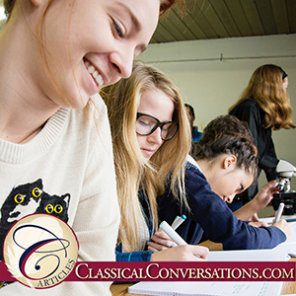In part one of this article we examined what we are really teaching when we teach mathematics and why it is important. In part two we will explore why practical math alone is not enough.
Tricks Without Understanding
Many of the people who argue against teaching algebra recommend, instead, courses in practical mathematics. They point out that the way that mathematics is actually used in the real world is usually very field-specific. They recommend skipping the abstractions of algebra and focusing on very concrete problems and how to solve them.
There is nothing wrong with teaching practical math. The problem is that, absent the more abstract reasoning that undergirds it, what you wind up with are people who know how to do tricks but don’t understand what they are doing. The goal of mathematics is to train students in reasoning abilities, not do tricks. Sometimes we need to teach tricks, but the goal is the reasoning abilities.
The problem with teaching tricks is that it prevents people from being able to analyze what other people tell them. If we teach students to reason, then if someone tells them something unreasonable, they have the tools and skills to analyze it. If we just teach students tricks to do their job, then they are at the mercy of everyone else. They only know partial facts fed them through external authorities, without the ability to judge their truth or falsity.
Some people suggest that statistical reasoning is more important than algebraic reasoning for daily tasks. However, usually that indicates that statistical reasoning is being taught without teaching the students the foundations for statistics (which are actually oftentimes tougher than algebra). But, again, this makes it easier for them to fall prey to bad statistical reasoning. If someone offers up another way to interpret the statistics, but they don’t know the underlying reasoning, then how are they to decide what is true?
Does All Math Need to Be Practical?
Hopefully, I’ve shown so far that mathematics is practical because it is about reasoning skills. Mathematics provides a concrete but abstract testing environment for analytical skills that gives definitive feedback as to whether the skills are being used correctly or incorrectly. However, not every item of mathematics will lend to this goal. To some extent, in order to show that they can use their reasoning skills, students will have to learn mathematical facts that aren’t so practical either for real-world mathematics or for reasoning. But they are necessary in order to have a workable base from which to practice mathematics skills. For instance, you won’t need most of the geometrical theorems for most jobs, and you can in theory learn proofs without learning all of the theorems. However, learning the geometry theorems provides grist for the examples that can be used to test your geometical reasoning.
To take an example from another field, the goal of learning history is not to have names and dates memorized, but to learn how the process of history works and where we came from. Nonetheless, at some point in order to do this you will have to memorize some names and dates to be able to show that you understand how history works and is put together.
Additionally, you should expect to have items in any course of study which are beyond what you will practically use. If we have a base level of knowledge, A, which is needed, and another set of knowledge, B, which is based on A, even if B is not essential, learning B will help solidify our knowledge of A. We may never use B again, but the fact that B relied so heavily on A means that we must have been practiced well enough in A that it is a core part of our being. We will probably forget B. But we have to build courses such that the fact that we will forget the outer limits of what we learned is factored in.
The Real Problem with Algebra
The real problem with algebra is that we often teach it not realizing that we are teaching basic reasoning skills. This leads to unenthusiastic teaching and unenthusiastic students. Teachers don’t recognize the power that mathematics has to train your brain for logical thinking. Books about mathematics don’t tend to be interesting for students, and fail to find the forest for the trees.
I don’t doubt there are parts of algebra, geometry, and trigonometry that perhaps need to be either skipped or rethought. Mathematics has been built up over centuries, and I’m sure the sequence could use some updating. But, more importantly, we need to teach students what they are learning when they learn math. We need to be excited to impart to them the abstract reasoning skills that they will use in every area of life. We need to tell them the importance of naming their ignorance (as in X), the importance of being able to logically rework hard issues (which is when we solve for X), and the importance of being rigorous in all of our reasoning skills.
I tell my students that when you learn something about biology, you have learned a new biological fact, and that’s good. However, when you learn something new about mathematics, you have learned something new about everything.




